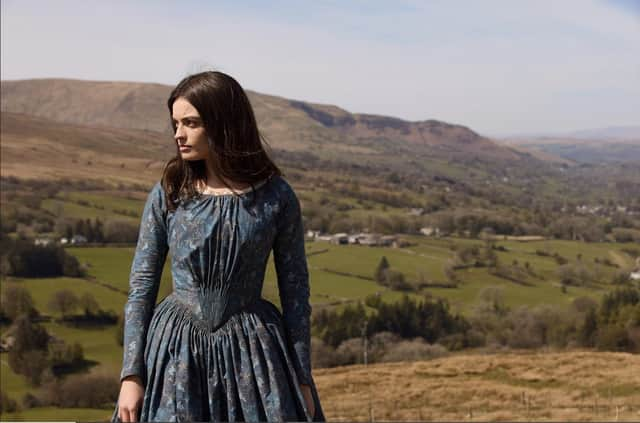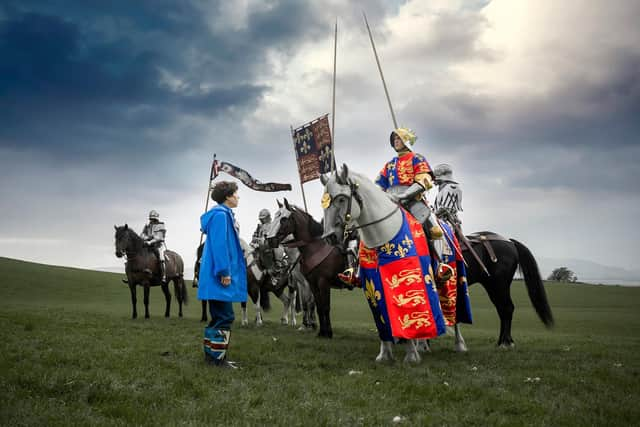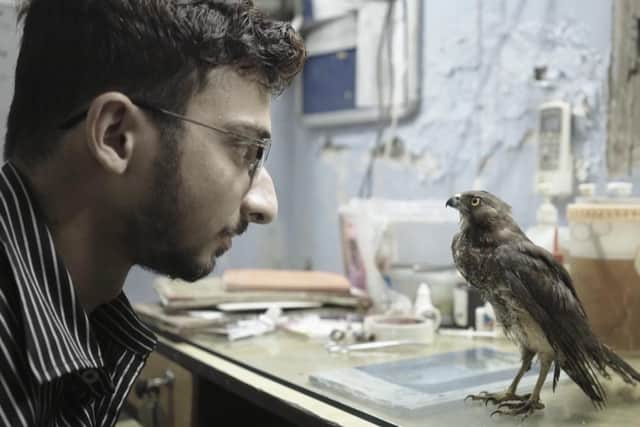Film reviews: Emily | The Lost King | All That Breathes


Emily (15) ***
The Lost King (12) **
All That Breathes (12A) ****
It’s a tricky thing capturing writing on screen. The hard graft required to transform something ephemeral into a tangible work of art doesn’t exactly lend itself to scintillating cinema. In Emily, the new film about Emily Brontë, actor-turned-writer/director Frances O’Connor attempts to get round this problem by reverse-engineering a psychological portrait of the author from the pages of Wuthering Heights in order to provide an origins story / creation myth for the novel itself.
Loosely biographical in its fidelity to the Brontë family’s real lives, the film divines a source for the raging passions coursing through her only novel in a thwarted, clandestine affair between Emily (played by Emma Mackay) and William Weightman (Oliver Jackson-Cohen), her father’s handsome new curate. At first Emily is sceptical of Weightman’s Byronic charms, but gradually she succumbs, bonding over French lessons, wild walks on the moors and vigorous sex on the sly. But when things inevitably sour, the film suggests the emotional detritus finds its way into the story of Catherine and Heathcliff that’s beguiled readers of Wuthering Heights since its first publication in 1847, before Emily’s death the following year.
Advertisement
Hide AdThat the affair is unlikely to have happened is hardly the point. O’Connor is trying to conjure something about the power of the imagination in general and Brontë’s imagination in particular. She doesn’t let historical pedantry get in the way of the story, in other words, especially a story about a woman using writing to process the frustrations and traumas of living in a world that doesn’t understand her.
Around the edges we get a tale of sibling rivalry as the prim and proper Charlotte (Alexandra Dowling), who has designs on Weightman herself, pleads with her to reveal the inspiration for her “ugly” novel, which according to the film, also inspires her to write Jane Eyre, even though Jane Eyre was published the same year and was embraced long before Wuthering Heights really found success.


Again, such flagrant disregard for historical accuracy isn’t necessarily an impediment to the success of a film trying to examine the blurred lines between life and art. Emily may not be as daring or as interesting as some of the more radical films exploring this theme, such as Josephine Decker’s pleasingly strange 2020 film Shirley, about the horror writer Shirley Jackson, or Todd Haynes’s shape-shifting Bob Dylan film I’m Not There. Nor is its interrogation of the Wuthering Heights mythos as artfully reimagined as Andrea Arnold’s brutally realist adaptation of the novel back in 2011. But O’Connor does inject some expressionistic flourishes that help clue us in to the way Emily’s restrictive exterior life inflamed her expansive interior one and even though it’s a speculative portrait, unlike the recent Blonde, O’Connor at least has some respect for her subject. Indeed, the creative license she takes with Charlotte plays more like an attempt to imagine how Emily might have been remembered had she lived long enough to oversee her own legacy.
On the subject of creative license, The Lost King sets out to right a wrong that some amateur history buffs believe Shakespeare perpetrated against Richard III. Reuniting Philomena director Stephen Frears with co-writer / star Steve Coogan, it’s a seriocomic dramatisation of the inspired-by-true-events story of Philippa Langley, the Edinburgh-based office worker whose quest to uncover the remains of Richard III led to their discovery in a Leicester carpark in 2012. Played by Sally Hawkins, Langley feels an affinity with the much-maligned monarch on account of her own ME, which has diminished her sense of self-worth after being passed over for a promotion and forced to juggle childcare with her ex-husband (Coogan).
Frustratingly, though, Frears is so blunt in his efforts to make this a populist underdog story in which she’s sidelined in her own endeavour that he stacks the decks in Philippa’s favour by turning virtually every academic expert she encounters into a snivelling, treacherous, elitist moustache-twirler. But Hawkins’ finely tuned performance doesn’t require such pantomime villainy to get us on Philippa’s side. She’s magnificent, which makes Frears and co's determination to dumb down the movie around her all the more irritating.
Zeroing in on two brothers who run a makeshift bird hospital in Delhi, Shaunak Sen’s documentary All That Breathes offers an intriguing, thoughtful look at the ideological and environmental problems tearing the city apart. Since they were teenagers, Mohammad and Nadeem have been rescuing the black kites that soar through the polluted skies high above their home city – a largely thankless task, but one that illuminates the problems Delhi faces as a whole: the predatory birds have adapted to their harsh conditions, feeding on the city's garbage like airborne rats, yet the smog and the heat also cause them to fall from the sky with increasing regularity, one more sign of the irreparable damage being done to the environment.
Advertisement
Hide Ad

Added to this are the anti-Muslim riots that engulf Delhi in 2020, putting Mohammad, Nadeem and their Muslim families on edge as they finally get funding to create a purpose-built facility while the city burns around them. Beautifully shot, the film captures the indifference of the birds to their would-be saviours, perhaps as a way of magnifying the indifference of the population at large to the creatures with whom they share their city.
Emily and All That Breathes are on general release from 14 October; The Lost King is in cinemas now.